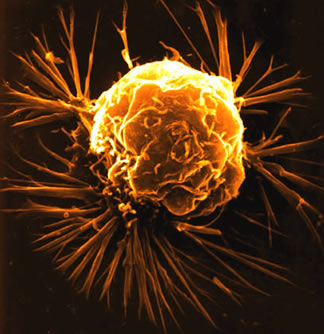Aug 4 2005
Scientists in the UK say they have detected four new genes believed to be involved in the development of breast cancer.

Researchers at the University of Cambridge, narrowed down the search for the genes, that could provide a basis for new treatments for the disease, by examining tissue from 53 breast cancer tumors and cells grown in the laboratory.
Professor Carlos Caldas, who headed the research team, says by using the latest in DNA technology, they have been able to pinpoint four new genes likely to be involved in the development of breast cancer.
The professor says this an exciting advance towards understanding how breast cancer develops, and could also herald a revolutionary new era in the discovery of genes linked to the disease.
According to the International Agency for Research on Cancer in Lyon, France, breast cancer is one of the most common cancers in women worldwide, and more than a million new cases occur each year.
Apparently most breast cancers are caused by damage to genes during a women's lifetime, and inherited mutations in genes called BRCA1 and BRCA2 are involved in cases of hereditary breast and ovarian cancer.
Caldas says scientists have been trying to pinpoint the new genes for two decades, and only by using DNA microarray technology, have he and his team been able to analyze the expression of many genes at the same time and search for the breast cancer genes.
Caldas is hopeful that this cutting edge technology will trigger a parallel increase in the speed at which new cancer treatments reach the patient.
It is already indicated by early results that tumors with multiple copies of the genes are more aggressive.
If confirmed, Caldas says it might provide a lead for targeted therapies.
The findings are published in the journal Oncogene.